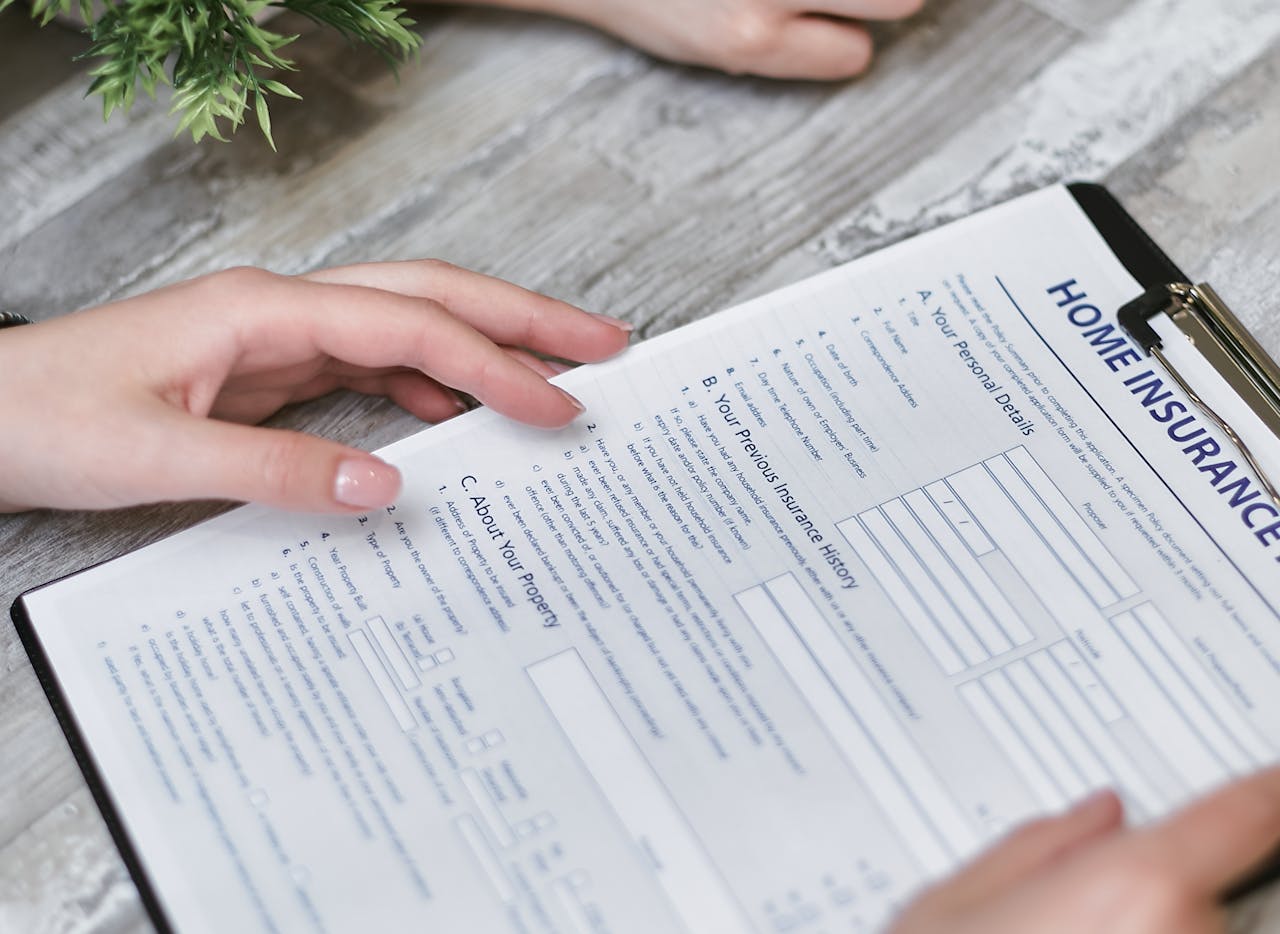- While STR sites like Airbnb & VRBO offer insurance, we still recommend purchasing a separate insurance plan to protect you and your property.
- Note the different types of insurance plans: home, landlord, renter's, STRATA, and short term rental insurance.
- A separate insurance plan can help cover the gaps, especially larger expenses that aren't covered by AirCover & similar policies.
Holiday homes & short-term rental insurance for Airbnb: what you need to know

Hosting your property on a platform like Airbnb, Booking.com, and other STR websites can be rewarding, but it comes with risks. While regular wear and tear is unavoidable when owning a property, unexpected guest damage can quickly eat into your profits. Stained sofas, damaged walls, broken windows, or even a fire started in the kitchen are all scenarios that hosts have experienced.
Many assume Airbnb's damage policy, along with insurance from other booking platforms, provide full protection. Airbnb’s AirCover, for example, offers damage and liability cover, but it isn’t an insurance policy. In reality, claims depend on strict evidence requirements and can be denied if they don’t meet the criteria. Other online booking platforms have similar limitations.
That’s where short-term rental insurance comes in. Unlike basic platform cover, it’s designed for properties rented on a short-stay basis. It can cover building damage, guest-related incidents, contents, and even loss of income.
This blog provides an overview of short-term rental insurance in Australia, how they compare, and why third-party short-term rental insurance is often necessary.*
*Please note that this is a general overview only; for specific advice, homeowners should consult a qualified insurance professional.
What’s the difference between insurance policies in Australia?
Not all insurance policies work for short-term rentals. Homeowners are often surprised when they discover their existing cover doesn’t apply once paying guests are involved. Here’s how the most common types differ:
- Home insurance: Protects owner-occupied properties. Generally excludes coverage when paying guests stay, so it won’t cover Airbnb activity.
- Landlord insurance: Covers long-term tenants under a lease agreement for more than 3 months. Landlord insurance for short-term rentals is often not applicable, as most policies don’t extend to guests staying for a few nights or weeks.
- Renter’s insurance: Protects the personal belongings of tenants, and is not relevant for owners or hosts.
- Strata insurance: Covers shared building structures, like the roof, lobby, garden, lift or shared swimming pools for apartment complexes. It doesn’t protect the contents or damage inside an individual lot.
- Short-term rental insurance: Designed for rotating guest stays. Covers accidental and malicious damage, theft, liability claims, fire, water damage, and sometimes income loss.
Understanding the difference between insurance types is critical to protecting your investment. Having the wrong cover can mean shouldering the costs of property damage or liability claims, which reduces the return from hosting.
AirCover and other booking site protections vs proper short-term rental insurance
Airbnb’s AirCover is one of the most talked-about protections for hosts. It offers up to USD $3 million in guest damage protection and USD $1 million in liability cover. Host damage protection covers your belongings damaged during a guest’s stay and the cost of repairs. Host liability insurance protects you in the unlikely event you’re found responsible for a guest’s injury, or their property being damaged or stolen on the premises.
On paper, this sounds comprehensive, but there are some key limitations to consider:
- Claims aren’t guaranteed: The outcome depends on how well you document the incident. Without strong photographic evidence, receipts, or timely reporting, Airbnb damage claims may be rejected.
- Coverage gaps exist: Normal wear and tear isn’t included. Nor are natural disasters, some fire-related incidents, or ongoing income loss.
- It’s not insurance: AirCover is a host protection program. It doesn’t replace the need for an actual insurance policy that underwrites specific risks.
Similarly, Vrbo Host Insurance provides $1,000,000 liability protection for traveller injury and possibly covers claims if a guest accidentally damages the property, with no guaranteed income replacement. Stayz have a Damage Deposit policy, which means as a host, you can request that a guest claim relevant damages when completing a reservation.
Insurance for a short-term rental, on the other hand, is structured to give hosts more certainty. It covers building, contents, and guest-related risks without depending on the outcome of a platform’s claims process. In other words, it’s a safety net designed for the real-world scenarios hosts face.
The gaps short-term rental insurance addresses
The short-stay market in Australia is growing, but with it comes exposure to risk. Even small damages can add up over time, and major incidents can cost thousands.
At Hometime, we often see three levels of cover at play:
- Building insurance: Protects the property’s physical structure against fire, storms, and other external risks. In strata complexes, this is often handled by body corporate contributions.
- Contents or landlord insurance: Covers internal items like furniture, appliances, clothes and electronics.
- Short-term rental insurance: Protects against guest-caused issues. This includes malicious damage, theft, accidental fires, and liability if a guest is injured. It can also cover lost income if your property becomes uninhabitable.
Most homeowner claims are small, often valued at a couple of hundred dollars, and often relate to stains, chipped walls, or broken blinds. These minor issues may be recoverable through platform deposits or AirCover. But larger issues, such as a guest accidentally starting a fire or flooding a bathroom, could result in thousands of dollars in repairs. Without the right insurance, the homeowner carries the cost.
Insurance is important for public liability. If a guest is injured on your property and you don’t have adequate cover, the legal and financial consequences could be significant. For hosts operating on narrow margins, this kind of setback could take months or even years to recover from.
What’s the best insurance for short-term rentals in Australia that works for you?
Several providers in Australia now offer policies designed for Airbnb and short-stay rentals. While each product differs, here are some of the main names homeowners explore:
- ShareCover: Policies tailored for short-stay hosting, including cover between one to 90 nights.
- EBM RentCover: Offers Airbnb landlord insurance, contents insurance and optional Airbnb building insurance, with a focus on liability and guest damage.
- Terri Scheer: Terri Scheer’s holiday rental insurance covers your property for any tenant-related damages to your building and contents.
- Maxton Insurance Brokers: A home and contents insurance policy or landlord insurance policy is not as likely to cover you for short-term paying guests. This short-term rental policy covers short-term guests acquired through platforms like Airbnb, Stayz and Tripadvisor.
- Insure More / Fully Insured / Breeze Underwriting: Providers offering short-stay specific policies for building and contents.
- Homsure / Duoinsurance: Guarantee peace of mind with short-term rental insurance to avoid gaps in coverage with other insurance policies.
- RAA and Ceneta Insurance Services – Regional providers with different options to suit certain homeowners’ needs.
Each insurer offers slightly different cover, from accidental damage to malicious acts and loss of rent. The best choice depends on property type (apartment vs standalone home), location, and the level of risk an owner is willing to carry.
When it comes to Airbnb and insurance, it’s always wise to compare policies using resources like Finder or Canstar, or to speak with an insurance broker who understands short-term rentals.
Take the stress out of short-term rentals with Hometime
Insurance may seem like another expense, but for short-term rental hosts, it serves as a safeguard for both your property and your income. Relying only on booking platform protections leaves gaps that could expose you to costly claims.
Hometime's Airbnb property management helps homeowners reduce risks by managing every part of the hosting process. From photography to property styling, professional cleaning, guest management, local host support, specialised revenue management and listing optimisation, we make running a short-term rental easier and more secure. While we don’t sell insurance, we work with homeowners every day who benefit from having the right cover in place.
If you’re considering hosting or already renting out your property, it’s worth exploring your options to find the best Airbnb insurance in Australia that works for you.
Want to see how much your property could earn with professional Airbnb management? Book a free earnings estimate with Hometime.

Amenities
Lorem ipsum dolor sit amet consectetur. Gravida elementum dolor semper felis pulvinar feugiat risus adipiscing dictum. Ultricies nec elementum nisi ut. Cras diam odio sed auctor pellentesque. Sit nisl ipsum id convallis tristique. Malesuada.
Frequently Asked Questions

Yes. While STR websites like Vrbo and Airbnb offer their own insurance, it's important to purchase your own as coverage may be limited otherwise.

No. While these offer some protection for guest-caused damage and liability, it is not a substitute for personal or business insurance.
A separate STR insurance policy is highly-recommended.

Yes, a separate insurance is recommended to reduce risks. A specialised insurance policy for STRs is recommended for all hosts.








